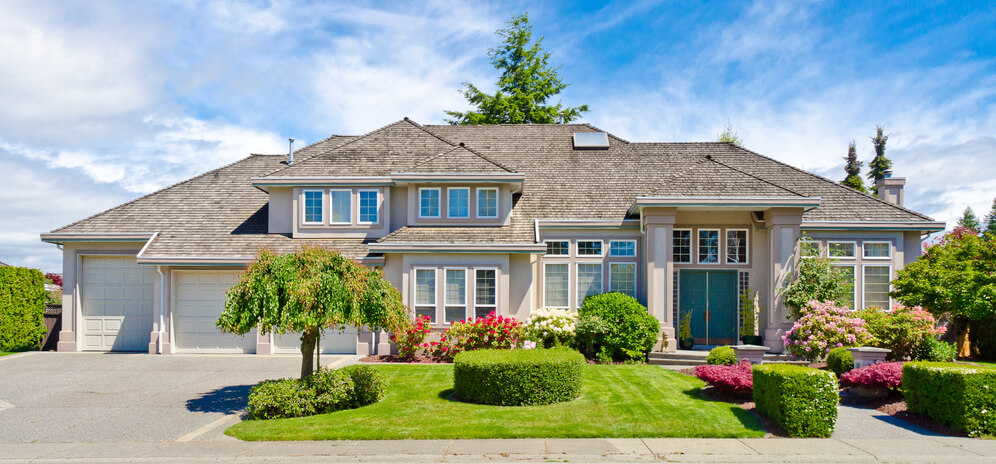But as this writer discovers, to find a home in a truly diverse suburb, she can’t move her husband and kids just anywhere.
This article was made possible because of the generous support of DAME members. We urgently need your help to keep publishing. Will you contribute just $5 a month to support our journalism?
For 15 years, I have lived with my family in Montclair, New Jersey, a leafy town with about 36,000 people, often referred to as an urban suburb 12 miles west from Manhattan. It’s a great place to live, as close to ideal as I have wanted. There is a downtown and an uptown, where there are plenty of great restaurants, movie theaters, cool shops, a few chains like the Gap, Anthropologie, Lululemon, Urban Outfitters, and, of course, Starbucks. We have a Whole Foods and three other supermarkets. Montclair and Upper Montclair is one town with two Zip codes. There are mansions and low-income homes that sit blocks away from each other.
The schools are good and we pay for those schools with extremely high property taxes. The taxes are so high in fact that my husband and I are selling our large, beautiful house to move into a smaller one with lower property taxes. If our younger child wasn’t still in school, we’d probably leave town altogether. But, we ask ourselves, Where are we gonna go?
The other day, I was walking my dog in the park with my friends Jen and Will, when Will turned to me and said, “I can’t believe you’re doing it.” I initially thought he was referring to the fact that we were selling our house. But he actually meant that he didn’t understand why we aren’t just moving to another town altogether for one with more inexpensive housing and lower property taxes.
“I’ve thought about moving to Bucks County or Rittenhouse Square in Philly, where they don’t have property taxes,” I told him. “But I don’t want to move my son away from his friends, from playing baseball with same kids he’s known for most of his 13 years.”
Well, with social media, they keep up with friends,” said Will.
Jen responded, “I don’t think by boys have ever Skyped with their friends.” Which is what I’d suspected. Keeping in touch over the internet is just not the same thing as going for pizza and walking to the movies.
The three of us strolled in silence. I was thinking about other towns we could move to and how limited our options are, for us, as a black family. I have no interest in being “the Black family” in the neighborhood. There are only four towns in the state where the racial balance is good and the schools are decent: South Orange, Maplewood, Englewood, and Teaneck. South Orange and Maplewood have taxes almost as high as Montclair’s and the other towns don’t appeal to me. In New York, New Rochelle is a racially mixed, tight-knit neighborhood with gorgeous homes, where taxes aren’t high—but private school appears to be a necessity.
After we walked quietly for a few minutes, Will broke the silence. “I realize I don’t have the same concerns as you.”
Bingo. Will is white.
Our daughter is currently away at college, but our son still has a few years before he follows suit, and I would never put either of my children in a situation where they were among the few black people—or the only black person—in the community. So when we moved to Montclair, it was perfect. The demographics are about 60 percent white, 40 percent black and “other.” There’s a rich mix of everything: same-sex parents, mixed-race couples and kids. The school board makes an effort to balance the racial numbers in the schools, and principals try to do the same in the classrooms. People who live here generally aren’t afraid to talk about race and we try to figure out how to get along. It’s the reason many people move here—it certainly was one of my top two.
We have watched the outbursts of Donald Sterling and Cliven Bundy, so we know that all this talk of living in a “post-racial” society is just that—talk. Race is still very much an issue. And I refuse to live in a place where my family and I would be perceived as an oddity, a pet, or an object of someone’s phobia or animosity.
So, where do we live then? I feel as an American of African descent, this “where to live” question is yet another Black tax or as James Baldwin called it, “the price of the ticket.”
I realize we aren’t the only group who do not have the luxury of living anywhere we please without aforementioned issues—I can only speak of mine.
So for now, as challenging as it is, we’re only looking for another house in Montclair, looking to stay for at least the next five years until our boy finishes high school.
After that, of course, this question will come up again, because we certainly won’t want to pay a bunch of taxes if we’re not using the school system.
My fantasy was always to move back into Manhattan, but that has become more and more of an opium-induced dream because of the stratospheric costs. Of course, things could change: One of my novels could get made into a blockbuster-hit movie and I become rich—Hey, it could happen. But right now, I’m getting older and less optimistic.
I’m thinking about what’s best for my son and making a move that may require another soon after.
The price of the ticket? Price of parenthood? How about all of the above?
